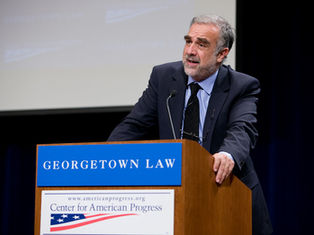top of page
Articles


When Is an Artwork Finished? Revisiting the Question
When is an artwork finished? Ann Landi, a contributing Editor of ARTnews , wrote an article that explored the question of when an...

Amir Pichhadze
17 min read


Migrants in Tunisia—When Sovereignty Triumphs over Dignity
Preamble ‘Tunisia will remain a state that will fight for the oppressed (or stand with the oppressed) and prevail for the victims of...

Romdhane Ben Amor
30 min read


Precarity Squared: The Intersectional Lived Experiences of African Transgender Migrants in Sweden
Abstract Sweden is globally considered not only a country with generous refugee reception policies but also a leading example of...

Miles Tanhira
23 min read


Conflict and Constitutionalism in Sudan: In Conversation with Abdelkhalig Shaib
Abdelkhalig Shaib is a Sudanese attorney and member of the American and New York Bar Associations, who specializes in constitutionalism...

Solomon Njombai
26 min read


That is the Work of Rohingya Women—It Cannot be Mistaken for Anyone Else’s Labour: In Conversation with Yasmin Ullah and Doreen Chen
Yasmin Ullah is a Rohingya author, poet, and human rights activist based in Canada. Born in the North Arakan state of Myanmar/Burma, she...

Alexandra Marcy Hall
31 min read


Afghan Women’s Rights to Education and Health Care in a Culture of Impunity
In the aftermath of the Second World War, just over seventy-five years ago the international community embraced the Universal Declaration...

Sima Samar
15 min read


From Syria to the Silver Screen: In Conversation with Jay Abdo
Jay Abdo is a Syrian actor and human rights activist, who has featured in various films and television shows in the Middle East and...

Nour Kachi
15 min read


Sexual Violence and Birth Prevention: Conceptualizing Beijing’s Attacks on Uyghur Reproductive Capacities as a Settler Colonialist Strategy of Attritional Genocide
NOTICE: This article contains information that some readers may find distressing. ‘Take her to the dark room’, said the Han Chinese man...

Adrian Zenz
25 min read


Gaza: Can Anyone Hear Us?
Gaza: Can Anyone Hear Us?[1] In a Washington Post article published on 16 December 2023, the reporter David Ignatius wrote: For three days this past week, I traveled the West Bank, from the arid hills below Hebron in the south to the chalky heights of Nablus in the north. What I saw was a pattern of Israeli domination and occasional abuse that makes daily life a humiliation for many Palestinians—and could obstruct the peaceful future that Israelis and Palestinians both s

Sara Roy
37 min read


Exposing Torture Crimes in Russian Prisons: In Conversation with Vladimir Osechkin
Vladimir Osechkin is a Russian-born human rights activist and founder of Gulagu.net, an NGO that documents and exposes crimes committed by Russian officials and the FSB. In November 2021, Osechkin was placed on a wanted list by the Russian state after leaking a large archive of documents, photos, and videos with hundreds of cases of rape and torture of inmates in Russian prisons directed by prison officials. Since August 2022, Osechkin has urged former Russian soldiers and di

Nadia Jahnecke
11 min read


The Tragedy of Sudan
‘Throughout history, it has been the inaction of those who could have acted; the indifference of those who should have known better; the silence of the voice of justice when it mattered most; that has made it possible for evil to triumph’. Haile Selassie, United Nations General Assembly, 4 October 1963.[1] Introduction The continuing suffering of the Sudanese people illustrates the futility of international policy-making in the absence of the political will necessary to enfor

Rebecca Tinsley
35 min read


People Not Boats: Sacrificing Human Rights on the Altar of the Hostile Environment in the UK
If you tolerate this, your children will be next! Manic Street Preachers, 1998 Introduction The issue of immigration and human rights law, or more precisely, the human rights of people on the move, has become one of the most urgent challenges for many Western societies. Syrian refugees walking across Europe in 2015 almost faded away in the collective memory. They were replaced by the images of people clinging on the planes leaving Kabul, a mass exodus from Ukraine, people

Zrinka Bralo
27 min read


Bearing Witness to Libya’s Human Rights Tragedy
The 2011 Western and Arab intervention in Libya was born of the lessons learned (or, as the case may be, not learned) from the international community’s previous two decades of responding to the outbreak of conflict and commission of gross violations of human rights in various contexts. More precisely, the Libyan case was informed by the international community’s previous failure to stop the horrific genocide in Rwanda and to halt what had been up to that point the largest ma

Stephanie Williams
30 min read


Harmonizing International Law and Political Power: In Conversation with Luis Moreno Ocampo
Luis Moreno Ocampo is an Argentine Lawyer and prosecutor who played a critical role in the Trial of the Juntas during Argentina’s democratic transition and later went on to serve as the first prosecutor at the International Criminal Court from 2003-2012. He is now a senior fellow at the Carr Center for Human Rights Policy at Harvard University.

Aidan Johnson
13 min read


Humanitarian Complicity in Genocide
This article explores an uncomfortable reality that locates international humanitarian and development organisations as sometimes unwitting, sometimes witting facilitators of the state crime of genocide and in doing so reveals the stark and sometimes lethal contradictions inherent in the overarching organisational goals and principles to which these organisations adhere. Our focus is on the Burmese/Myanmar Rohingya genocide, and the immediate pressures, moral dilemmas, and in

Penny Green and Thomas MacManus
34 min read


The Battle of Preserving Liberty: In Conversation with Mazen Darwish
Mazen Darwish is a Syrian Human Rights lawyer, freedom of expression activist and the president of the Syrian Centre for Media and Freedom of Expression. He was arrested in 2012 by the intelligence forces in Syria along with fifteen other journalists, one of whom was his wife Yara Bader. During his imprisonment he was subject to a forced disappearance and his whereabouts were unknown. Following his release and escape from Syria, Mazen has continued to advocate for freedom of

Nour Kachi
18 min read


Directing The Mauritanian: In Conversation with Kevin Macdonald
Over his career, Kevin Macdonald has directed a plethora of documentaries and films which have garnered critical acclaim and popular success. Not one to shy away from sensitive and complex subject matter, Kevin’s work depicts unsanitised, thought-provoking stories, from a documentary on antisemitism to a film on a prisoner in Guantanamo. For the former, Kevin was awarded an Academy Award for Best Documentary feature. His latest film, The Mauritanian , explores the real story

Fabienne Marshall
13 min read


The Power of Information in the Syrian Revolution: In Conversation with Rami Jarrah
Rami Jarrah is a Syrian political activist who played a major role in exposing the Syrian regime’s war crimes during the 2011 Syrian Revolution. During a time when international journalists were not allowed in Syria, Rami operated under the alias of ‘Alexander Page’, where he would document the war crimes committed by the Syrian government and share them on social media and to news outlets around the world. His bravery and fearlessness played a major role in exposing the trut

Nour Kachi
29 min read


The Obligation to Undress and the Destruction of Personal Belongings: The Lesser Evil
1. The Obligation to Undress and the Destruction of Personal Property: Related Violations 1.1. Evidence of Confiscation and Destruction of Migrants’ Personal Belongings Denounced by International Organisations, Bodies, and Non-Governmental Organisations The requirements for migrants to undress and the destruction of their personal belongings—including documents and mobile phones—by border guards and Frontex [the European Border and Coast Guard Agency] agents, at both inte


Tibet’s Advocate: In Conversation with Dhondup Wangchen
Dhondup Wangchen is a Tibetan filmmaker. As a self-taught filmmaker, he secretly shot Leaving Fear Behind in response to the Beijing 2008 Olympics and the International Olympic Committee’s failed promise of improved rights for the Tibetan people. The documentary was cut together from footage smuggled out of Tibet and uncovered life in Tibet under Chinese communist rule. Dhondup was subsequently imprisoned for six years during the 2008 Tibetan uprising for subversion of state

Nancy Lura
12 min read


The Past, Present, and Future of Political Protest in Burma: In Conversation with Bo Kyi
Bo Kyi is a Burmese human rights activist and founder of the Assistance Association for Political Prisoners (AAPP), a human rights organization that advocates for the release of political prisoners in Burma and works to document prison conditions, unlawful arrests, and detention-related abuses carried out by the Burmese government. The AAPP also provides humanitarian assistance and other support to current and former political prisoners and their families. Bo Kyi is a former

Aidan Johnson
20 min read


Why have the Youth Disappeared? The Visible Invisibility of Youth Political Activism in E-1 Bedouin Communities
Introduction[1] Why have Palestinian Bedouin youth in the Jerusalem periphery disappeared? This has been a consistent question in the minds of researchers working with Al-Quds University Human Rights Clinic (AQHRC). The AQHRC has been working with Palestinian Bedouin communities in the southeast Jerusalem periphery since 2014. These communities are among the most vulnerable communities to Israeli settler colonialism in all of its components; land expropriation, displacement


Confiscation of Russian Assets: Legal, Human Rights, and Political Limitations
Moral considerations in confiscating Russian assets Russia’s full-scale war against Ukraine has been going on for almost two years. During this time, Russia has committed brutal crimes against Ukrainians, which were witnessed by the international community. In February 2023, the UN General Assembly demanded that Russia stop the war and immediately withdraw its army from Ukraine.[1] In March 2023, the International Criminal Court (ICC) issued an arrest warrant for Vladimir Put


Images of Iran’s Resistance: In Conversation with Roshi Rouzbehani
Roshi Rouzbehani, a London-based Iranian illustrator, uses her captivating artwork to champion social causes. Beyond captivating aesthetics, her editorial and portrait illustrations address critical issues like gender equality, women’s rights, and mental health awareness, sparking conversations and advocating for positive change. CJLPA : Thank you for taking the time to interview with The Cambridge Journal of Law, Politics, and Art to discuss your work as an illustrator and

Solomon Njombai
11 min read
bottom of page




